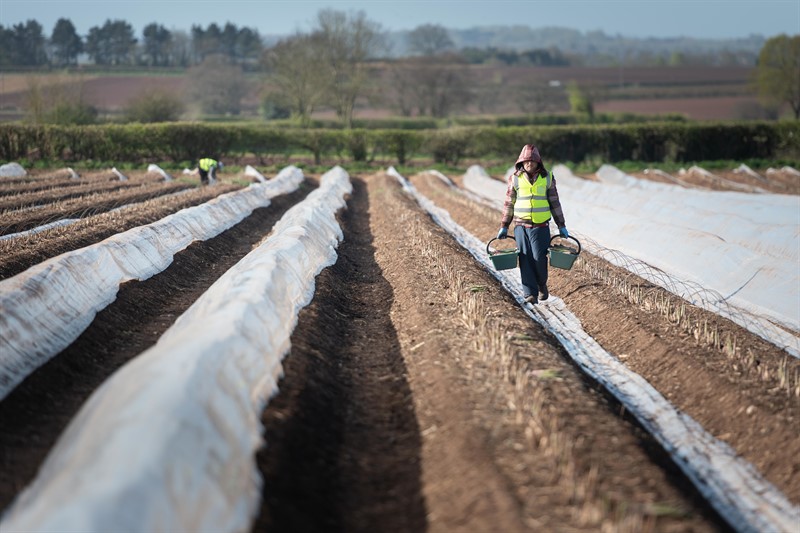The Efra (Environment, Food and Rural Affairs) Committee has published its Labour shortages in the food and farming sector report. It warns that the sector could shrink if labour shortages continue in the way we saw in 2021.
Risk of permanent damage
It states that the industry could be at risk of permanent damage unless the government acts on the lack of workers, which is largely due to Covid-19 and Brexit. It urges the government to address immigration and visa schemes to help ease the problem.
Valiant attempts by the industry
Efra says that despite valiant attempts by the industry, Ministers failed to understand the issues and even sought to pass the blame onto the sector.
"Even more importantly, government must change its attitude to the food and farming sector – trusting them and acting promptly when they raise concerns. Our food and farmers depend on it."
Neil Parish MP, Efra Committee chair
Efra Committee chair Neil Parish MP said: "The government’s attitude to the plight of food and farming workers was particularly disappointing.
"While some of the reforms put forward by government have helped in the short term, and we agreed that we must look to expand the domestic workforce – this won’t happen overnight."
Trust farmers
"In the meantime, it must use the powers available – including over immigration policy – to support the sector," he continued. "Otherwise we will export our food production and import more of our food.
"Even more importantly, government must change its attitude to the food and farming sector – trusting them and acting promptly when they raise concerns. Our food and farmers depend on it."
Report backs up NFU call
Responding to the report, NFU President Minette Batters said: "Today’s report from the Efra committee backs up the NFU’s long-standing call for a more enabling immigration policy which mitigates against the crippling labour shortages and structural issues that have existed throughout the food supply chain for many months."
Government needs to act urgently
Mrs Batters continued: "To ensure stability in domestic food production, the government needs to act urgently to give farmers and growers the confidence they need to invest in domestic production and enable British food and farming to thrive.
"The NFU, alongside the whole food supply chain, continues to seek a review of the current immigration system, including the Shortage Occupation List and Seasonal Worker Scheme as recommended by the Migrant Advisory Committee (MAC) 20 months ago.
500,000 vacancies
"This would help ensure that the labour needs of the food supply chain are met and help to shore up the estimated 500,000 vacancies left unfilled across the food and farming industry," she said.
"These vacancies threaten our own UK food security, and our ability to contribute to the nation’s economy through increased exports."
Farm businesses working hard
Mrs Batters went on to say: "Farm businesses are working hard to recruit staff domestically, but even sharply rising wages have had little impact because the labour pool is so limited.
"Instead, this only adds to production costs at a time when we are also facing rapidly rising costs on farm and continued global uncertainty due to the conflict in Ukraine and the real possibility of a crisis of confidence among the nation’s farmers and growers."
The right people with the right skills
She concluded: "A solution to this crisis will need the right people with the right skills and training available in rural areas where many roles are based.
"In addition, we are asking government to release the additional 10,000 visas it already can under the Seasonal Workers Scheme, which are needed to ensure labour shortages are kept to a minimum as we reach peak harvest time."
We will continue to update you on developments as and when they happen, and press government to find a long-term solution.
